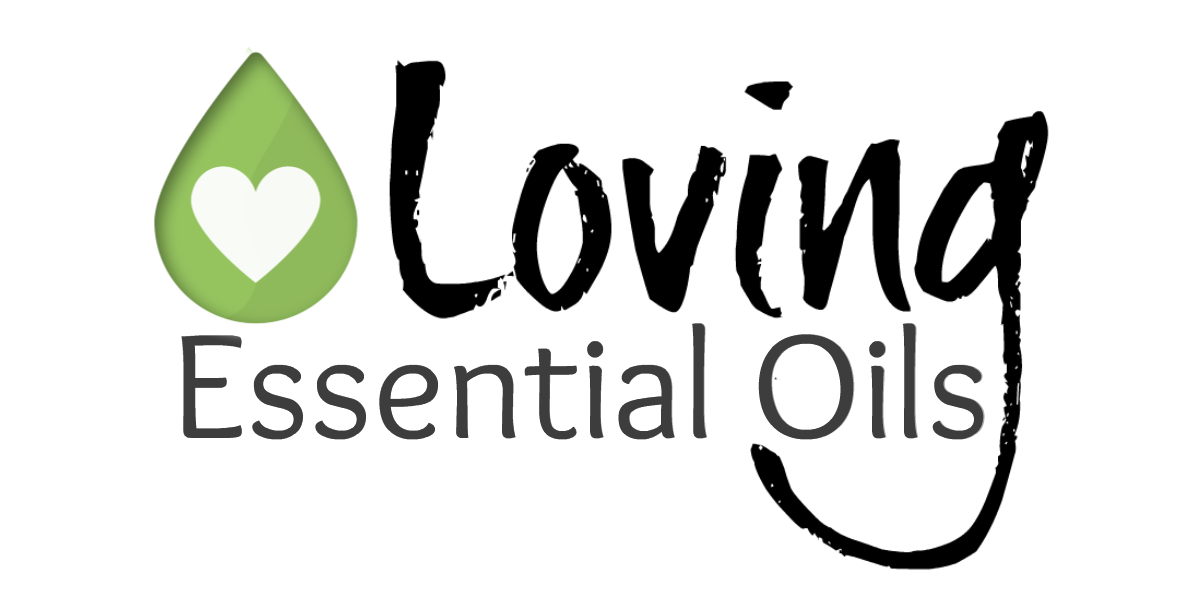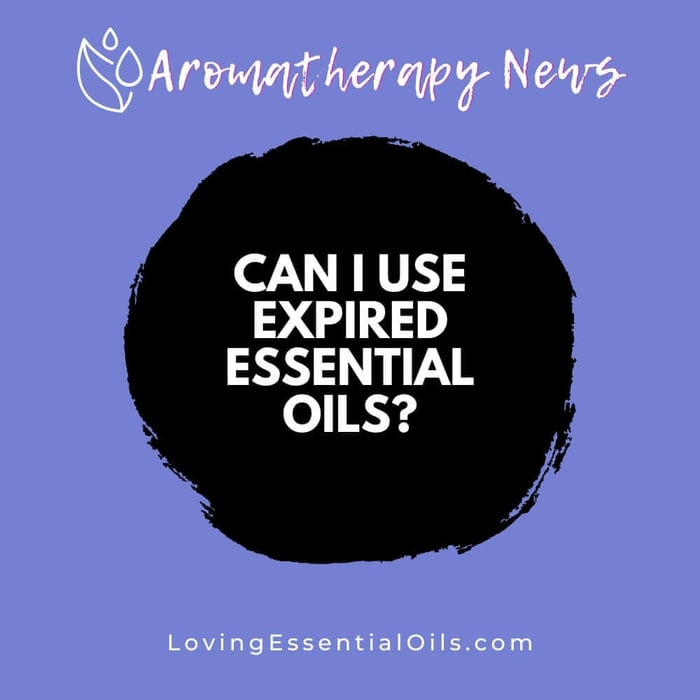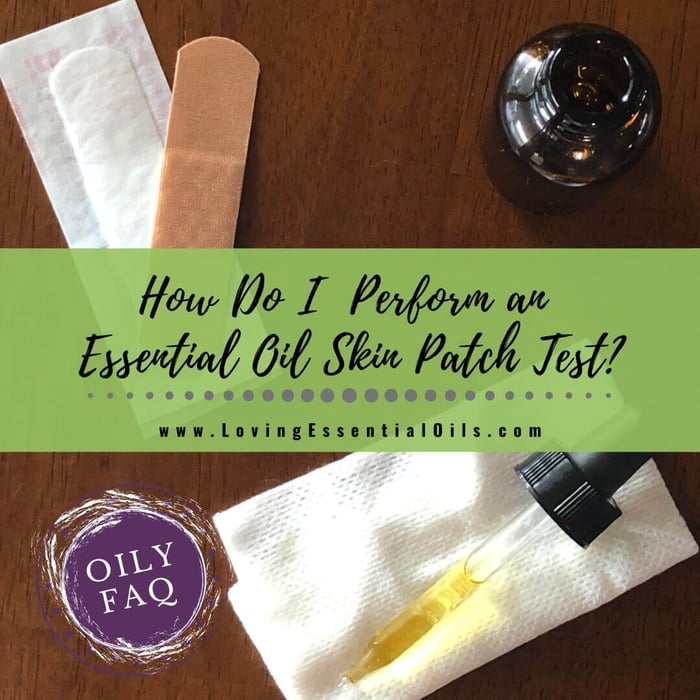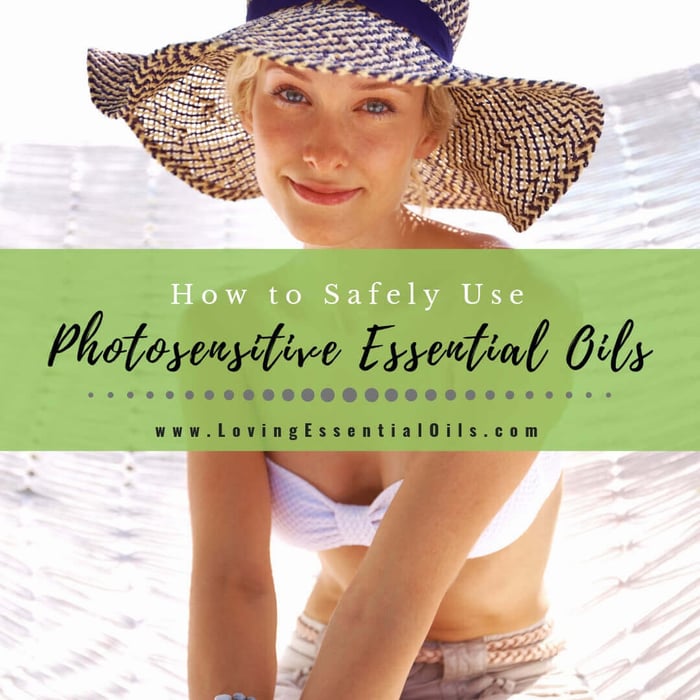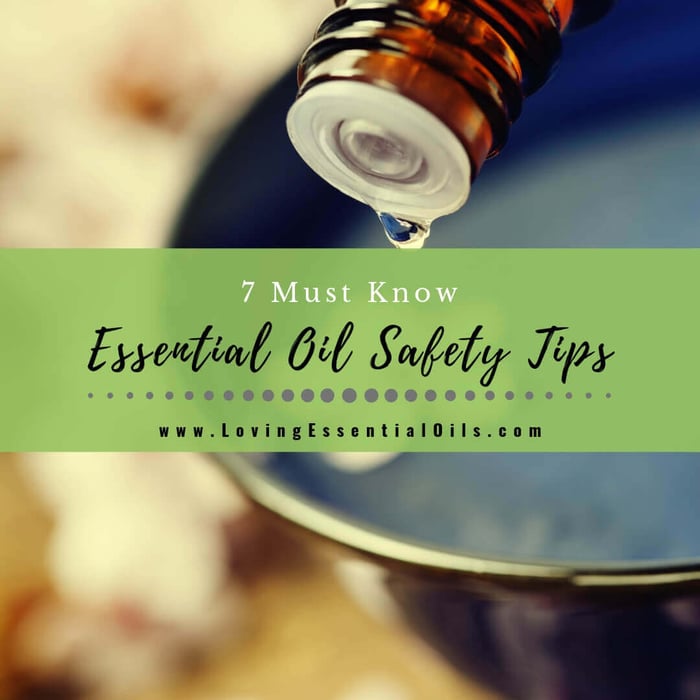Table of Contents
- Do Essential Oils Expire?
- The Shelf Life of Essential Oils and How to Extend It
- Can I Use Expired Essential Oils?
- Signs of Bad Essential Oils
- Unpleasant Odor: A Clear Sign of Bad Essential Oils
- Cloudy Appearance: An Indication That Your Oil Has Expired
- Skin Irritation: Using Expired Essential Oils Can Be Harmful
- Reduced Potency: Less Effective for Aromatherapy or Other Uses
- Changes in Color: A Sign of Oxidation or Contamination
- Inconsistent Labeling: Difficult to Determine if Oil is Still Good
- Proper Storage of Essential Oils
- Keep Essential Oils Out Of Reach From Children And Pets
- How to Tell If Your Essential Oil Has Expired
- Why It's Important to Use Fresh Essential Oils?
- Risks of Using Expired Essential Oils
- Can I Ingest Expired Essential Oils?
- Final Thoughts on Determining if Essential Oil has Expired
Essential oils have gained significant popularity in recent years as people seek natural remedies for various health concerns. However, many are unaware that these oils have a shelf life, and using expired essential oils can cause harm. This is especially true for popular essential oils like eucalyptus and rose.
Beginner essential oil users should be aware that expiration occurs when the oil's chemical composition changes due to exposure to light, heat, or air, which can cause the oil to become oxidized.
The oxidation process can alter the aroma and therapeutic properties of the oil, making it less effective or even harmful to use.
Experts recommend checking the expiration date on essential oil bottles and storing them in a cool, dark place to extend their shelf life. It's essential to note that certain oils, such as sandalwood and patchouli, actually improve with age and can often be used beyond their expiration date.
Do Essential Oils Expire?
Yes, they do. Just like any other organic substance, essential oils have a shelf life and will eventually lose their potency and effectiveness over time. This is because essential oils are made up of volatile compounds that can easily evaporate or degrade when exposed to heat, light, air, or moisture.
How can you tell if an essential oil has expired?
Look for the expiration date on the bottle, which is typically 1-3 years from the date of purchase. However, the duration of essential oils may vary depending on their quality, properties, purity, storage conditions, and usage frequency.
Additionally, exposure to oxygen can cause essential oils to degrade more quickly. This is why it's vital to keep your essential oils in dark glass bottles with tight-fitting caps and store them in a cool, dry place, away from sunlight and humidity.
The Shelf Life of Essential Oils and How to Extend It
Essential oils have varying shelf lives, with some lasting up to 5 years, while others have a shorter shelf life of only 1 year. They offer a wide range of benefits, from reducing stress and anxiety to alleviating headaches and promoting better sleep.
To ensure that you get the most out of your essential oils and extend their shelf life as much as possible, it's crucial to store them properly.
One of the most important things you can do is to keep them in a cool, dark place away from sunlight and heat sources. This helps prevent oxidation and degradation of the oils.
In addition to keeping your essential oils away from light and heat, you can also add a small amount of baking soda to the storage container or case the bottles are kept in (don't add to the oil bottle!). This will help absorb any moisture that may cause the oils to spoil faster.
Shelf Life Factors
Just as with food, it's essential to check the expiration date on essential oils before using them. Expired oils may not be as effective or safe to use.
It's also worth noting that even if an oil hasn't expired yet, its quality may still deteriorate over time. This is why in general it's recommended that you use your essential oils within 1-2 years after opening them.
There are several other factors that come into play as well. For example, different types of essential oils have different properties that affect their longevity. Essential oils derived from citrus fruits tend to have shorter shelf lives due to their high acidity levels.
On the other hand, some essential oils can last for many years if stored correctly. These include cedarwood oil, sandalwood oil, patchouli oil, and vetiver oil.
Another factor that affects the shelf life of essential oils is how they are extracted. Essential oils that are steam distilled tend to have longer shelf lives than those that are cold-pressed or solvent extracted.
It's also worth noting that the quality of the essential oil you purchase can affect its shelf life. High-quality oils that are pure and free from contaminants will last longer than lower-quality oils.
Read more about the Shelf Life of Carrier Oils
Can I Use Expired Essential Oils?
The answer is not a simple yes or no. Essential oils are generally considered safe to use, even after they've expired. That said, there are a few things you should keep in mind if you're using expired essential oils.
First of all, expired essential oils may not be as potent as fresh ones. This means that you might need to use more of the oil to achieve the desired effect.
Additionally, some people believe that expired essential oils can cause skin irritation. If you have sensitive skin, it's best to err on the side of caution and not use an oil that has expired.
Also note that not all essential oils are created equal. Some brands may use better quality ingredients than others, which could affect how long the oil lasts after its expiration date.
Finally, it is important to determine if any signs of expiration are present. Let's take a look at some ways to tell if your essential oil is bad.
Signs of Bad Essential Oils
Like any other product, essential oils have a shelf life. When they expire, they can lose their potency and even become harmful to use. Here are some signs that your essential oil has expired.
Unpleasant Odor: A Clear Sign of Bad Essential Oils
One of the most obvious signs that your essential oil has gone bad is its unpleasant odor. Expired essential oils may have a rancid or foul smell that is different from their original scent.
This change in odor is due to the oxidation process that occurs when the oil comes into contact with air and light over time. If you notice an off-putting smell coming from your essential oil bottle, it's best to discard it immediately.
Cloudy Appearance: An Indication That Your Oil Has Expired
Another sign that your essential oil has gone bad is its appearance. If the oil appears cloudy or has sediment at the bottom of the bottle, it may be an indication that it has expired.
The cloudiness could be due to moisture getting into the bottle or chemical reactions occurring within the oil.
If you notice sediment or cloudiness in your bottle compared to when you first purchased the oil, it's likely that it has expired.
Skin Irritation: Using Expired Essential Oils Can Be Harmful
Using expired essential oils on your skin can cause redness, irritation, itching, and other allergic reactions. This is because as essential oils age, they can become more concentrated and harsh on the skin.
If you experience any adverse reactions after using an essential oil on your skin, stop using it immediately and seek medical attention if necessary.
Reduced Potency: Less Effective for Aromatherapy or Other Uses
Over time, essential oils lose their potency and therapeutic benefits, making them less effective for aromatherapy or other uses. If you're using an expired essential oil for its therapeutic properties, it may not provide the same benefits as a fresh bottle.
To ensure that you're getting the most out of your essential oils, it's important to use them before they expire.
Additionally, store your oils in a cool, dark place away from direct sunlight to slow down the oxidation process.
Changes in Color: A Sign of Oxidation or Contamination
Some essential oils may change color as they age, which can be a sign of oxidation or contamination. For example, citrus oils such as lemon or grapefruit may become darker over time due to exposure to air and light.
If you notice any significant changes in color compared to when you first purchased the oil, it's best to discard it and purchase a fresh bottle.
Inconsistent Labeling: Difficult to Determine if Oil is Still Good
If the label on the bottle is faded or missing important information such as the expiration date or batch number, it may be difficult to determine if the oil is still good to use.
It's important to keep track of when you purchased your essential oils and check their expiration dates regularly.
Additionally, always purchase from reputable sources that provide clear labeling and information about their products. This will help ensure that you're using high-quality essential oils that are safe and effective for their intended purposes.
Essential Oil Guide for Beginners - Getting Started
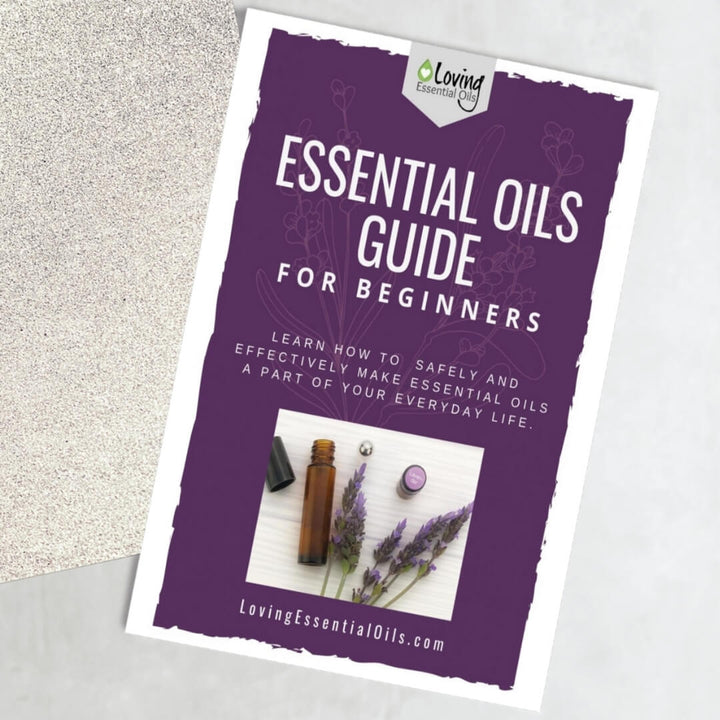
$ 5.99
Beginner's Essential Oil Guide - Download/Printable Learn how to safely and effectively make essential oils a part of your everyday life. Everything you need to know about essential oils. If you have ever been around anyone who loves using essential… Read More
Proper Storage of Essential Oils
Essential oils are highly concentrated plant extracts that have been used for their therapeutic and aromatic properties. These oils are versatile and can be used in various ways, such as aromatherapy, massage, and skincare.
However, to ensure the potency and safety of essential oils, proper storage is crucial.
Store Essential Oils in Smaller Containers
To maintain the potency and safety of essential oils, it's best to store them in smaller containers. This helps to reduce the amount of air that comes into contact with the oil, which can cause it to oxidize and lose its potency over time.
When exposed to air, essential oils can also become contaminated with bacteria or other microorganisms. Therefore, it's recommended to transfer your essential oils from larger bottles into smaller ones.
For example, if you purchase a 30ml bottle of lavender oil, consider transferring some of it into a 5ml or 10ml bottle for daily use. This way, you'll only open the smaller bottle when you need a few drops of oil.
Keep Essential Oils in a Cool, Dark Place
Essential oils should be stored away from direct sunlight and heat sources since these can also cause the oil to degrade and lose its effectiveness. A shelf or cupboard in a cool, dark room is an excellent option for storage.
When exposed to heat or light, essential oils can break down and lose their therapeutic properties. Therefore it's important not to store them near windows or radiators where they might be exposed to direct sunlight or heat. Storing in a bathroom can also lead to moisture and heat exposure.
Consider Storing Some Essential Oils in the Fridge
Some essential oils like citrus oils are particularly sensitive to heat and light. Storing these types of oils in the fridge can help extend their shelf life while maintaining their potency.
It's important not to store essential oils in the freezer since this can cause the oil to solidify, making it challenging to use. Additionally, when you remove an essential oil from the fridge, allow it to come back to room temperature before opening the bottle.
Choose Safe Containers
When storing essential oils, it's important to choose safe containers that won't interact with or degrade the oil. Glass bottles are an excellent choice for storing essential oils since they are non-reactive and don't contain any harmful chemicals that could leach into the oil.
Avoid using plastic containers since some types of plastic can react with essential oils and cause them to break down quickly. If you must use plastic containers, ensure they are made of high-density polyethylene (HDPE) or polypropylene (PP), which are less likely to react with essential oils.
Label Your Bottles Correctly
It's crucial to label your bottles correctly when storing essential oils. This will help you keep track of what's inside each bottle and avoid confusion or accidents. Be sure to include the name of the oil, date of purchase, and expiration date if applicable.
Essential oils don't necessarily expire; however, their potency can diminish over time. Therefore it's recommended not to store them for more than two years after opening.
Keep Essential Oils Out Of Reach From Children And Pets
Essential oils are potent substances that should be kept out of reach from children and pets. Some essential oils like wintergreen, birch, eucalyptus and peppermint can be toxic if ingested in large quantities.
Therefore it's recommended always to keep your essential oils stored in a secure location where children and pets cannot access them accidentally.
How to Tell If Your Essential Oil Has Expired
Check the Expiration Date
Over time, they can lose their potency and even become harmful if they expire. The first step in determining whether your essential oil has expired is to check the expiration date. Most essential oils have a shelf life of about 1-3 years, although this can vary depending on the type of oil and how it's stored.
If you're unsure about when your oil was purchased or how long it's been open, it may be time to replace it.
Look for Changes in Color and Consistency
Another way to tell if your essential oil has expired is by looking at its color and consistency. If an oil has changed color or texture since you last used it, this could be a sign that it's past its prime.
For example, citrus oils like lemon or grapefruit should be clear or pale yellow when fresh. If the oil has turned brown or darkened significantly, this could indicate that it's no longer good to use.
Similarly, thicker oils like patchouli or sandalwood should maintain their viscosity over time. If these oils have become thin or watery, this could mean that they've expired.
Smell the Oil
Perhaps the easiest way to tell if an essential oil has expired is by smelling it. Essential oils should have a strong, pleasant aroma that reflects their natural scent profile. If an oil smells off or rancid in any way, this is a clear indication that it's gone bad.
It's worth noting that some essential oils naturally have stronger scents than others. For example, peppermint and eucalyptus are known for their powerful aromas while lavender and chamomile are more subtle. However, even if an oil has a mild scent, it should still be fresh and pleasant to smell.
Why It's Important to Use Fresh Essential Oils?
Using expired essential oils can be ineffective at best and harmful at worst. Over time, the chemical composition of essential oils can change, which means that they may not work as intended.
For example, an expired oil may not have the same therapeutic benefits as a fresh one or may not be as effective in cleaning products.
In some cases, using an expired essential oil can even cause skin irritation or other adverse reactions. This is because the compounds in the oil may have broken down or become contaminated over time.
To ensure that you're getting the most out of your essential oils and avoiding any potential risks, it's important to use fresh products whenever possible. This means checking expiration dates regularly and replacing any oils that have gone bad.
How can I Store Essential Oils Properly to Extend Their Shelf Life?
One of the best ways to ensure that your essential oils last as long as possible is by storing them properly. Essential oils should be stored in a cool, dry place away from direct sunlight. Exposure to heat and light can cause the oils to break down more quickly, reducing their potency and shelf life.
It's also important to keep essential oils in dark glass bottles with tight-fitting lids. This helps protect them from exposure to air and moisture, which can also cause them to degrade over time.
Risks of Using Expired Essential Oils
Expired essential oils can be dangerous to use, and it is important to understand the risks associated with them. While essential oils are known for their therapeutic properties, using expired ones can lead to skin irritation, allergic reactions, and other adverse effects.
Chemical Composition Changes
The chemical composition of essential oils changes over time, which can affect their therapeutic properties and safety. Essential oils contain volatile compounds that evaporate over time, causing the oil to lose its potency. As a result, using an expired essential oil may not provide the desired therapeutic benefits.
Increased Risk of Contamination
Using expired essential oils can increase the risk of contamination and bacterial growth, especially if they have been stored improperly. Essential oils should be stored in a cool, dry place away from direct sunlight or heat sources. If an essential oil has been exposed to heat or light for an extended period of time, it may become rancid or contaminated with bacteria.
Skin Irritation and Allergic Reactions
Expired essential oils can cause skin irritation and allergic reactions due to changes in their chemical composition. The skin is the largest organ in our body and absorbs everything we put on it. When we apply expired essential oils on our skin, it may cause redness, itching or even rash.
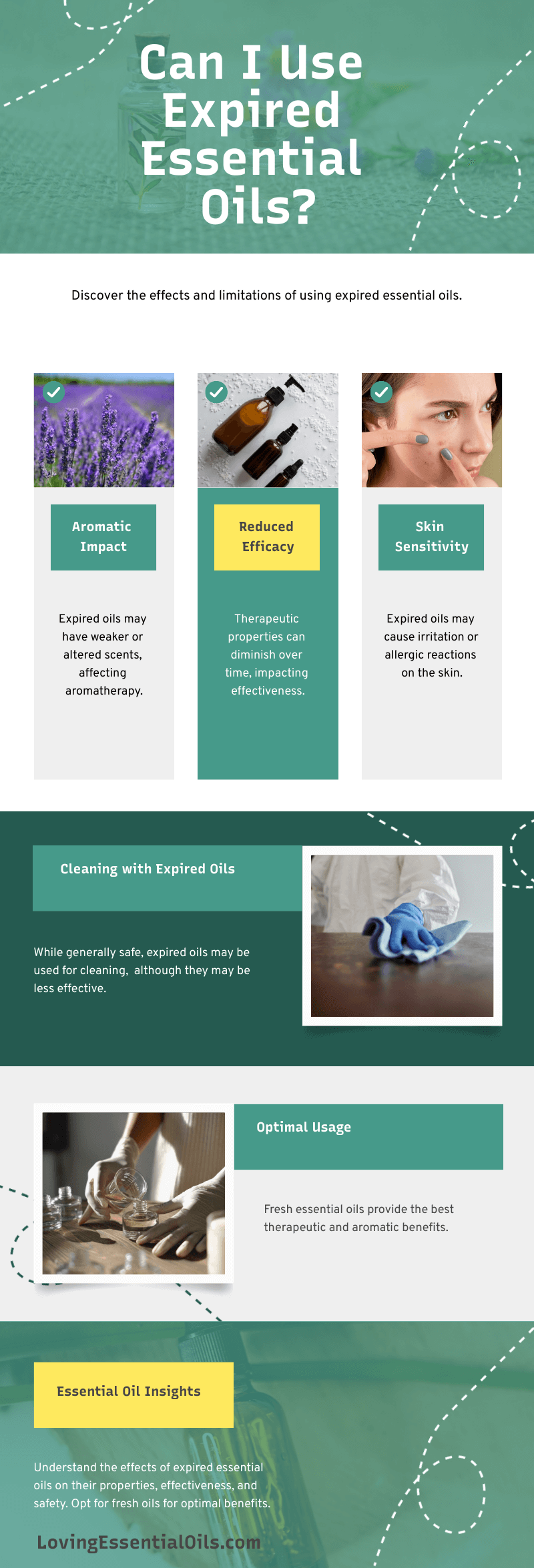
Can I Ingest Expired Essential Oils?
Ingesting expired essential oils can be particularly dangerous, as they may contain harmful compounds or toxins that can cause serious health problems. Some people believe that ingesting small amounts of certain types of essential oils is safe; however this is NOT recommended and NOT true especially when they have gone bad.
- Cinnamon bark oil contains high levels of cinnamaldehyde which is toxic when ingested in large amounts. If you ingest cinnamon bark oil that has gone bad then there could be higher levels of cinnamaldehyde present than what is considered safe for consumption.
- Similarly peppermint oil contains menthol which provides many health benefits but if consumed in large amounts can cause serious health problems. Expired peppermint oil may contain higher levels of menthol than what is considered safe for consumption.
Final Thoughts on Determining if Essential Oil has Expired
Essential oils are powerful tools that can be used for a variety of purposes. However, it's important to remember that these plant extracts do have a shelf life.
By checking expiration dates, looking for changes in color and consistency, and smelling your oils regularly, you can ensure that you're using fresh products that will deliver the results you're looking for.
While some may argue that expired oils are still safe to use, it's important to consider the potential risks and take proper precautions when handling them.
To extend the shelf life of your essential oils, be sure to store them properly in a cool, dark place away from direct sunlight and heat. Always check for signs of spoilage before using any oil, including changes in color, consistency, or scent.
Remember that using expired essential oils comes with risks, and it's always better to err on the side of caution, consult with a qualified aromatherapist or healthcare professional if needed.
So can you use expired essential oils? The answer is not a simple yes or no. It ultimately depends on factors such as how long they've been expired, are there signs of expiration, and how they've been stored.
By taking proper precautions and being mindful of potential risks, you can make an informed discussion on adding expired oils into your aromatherapy routine.
Remember: freshness is key!
Share on Pinterest

